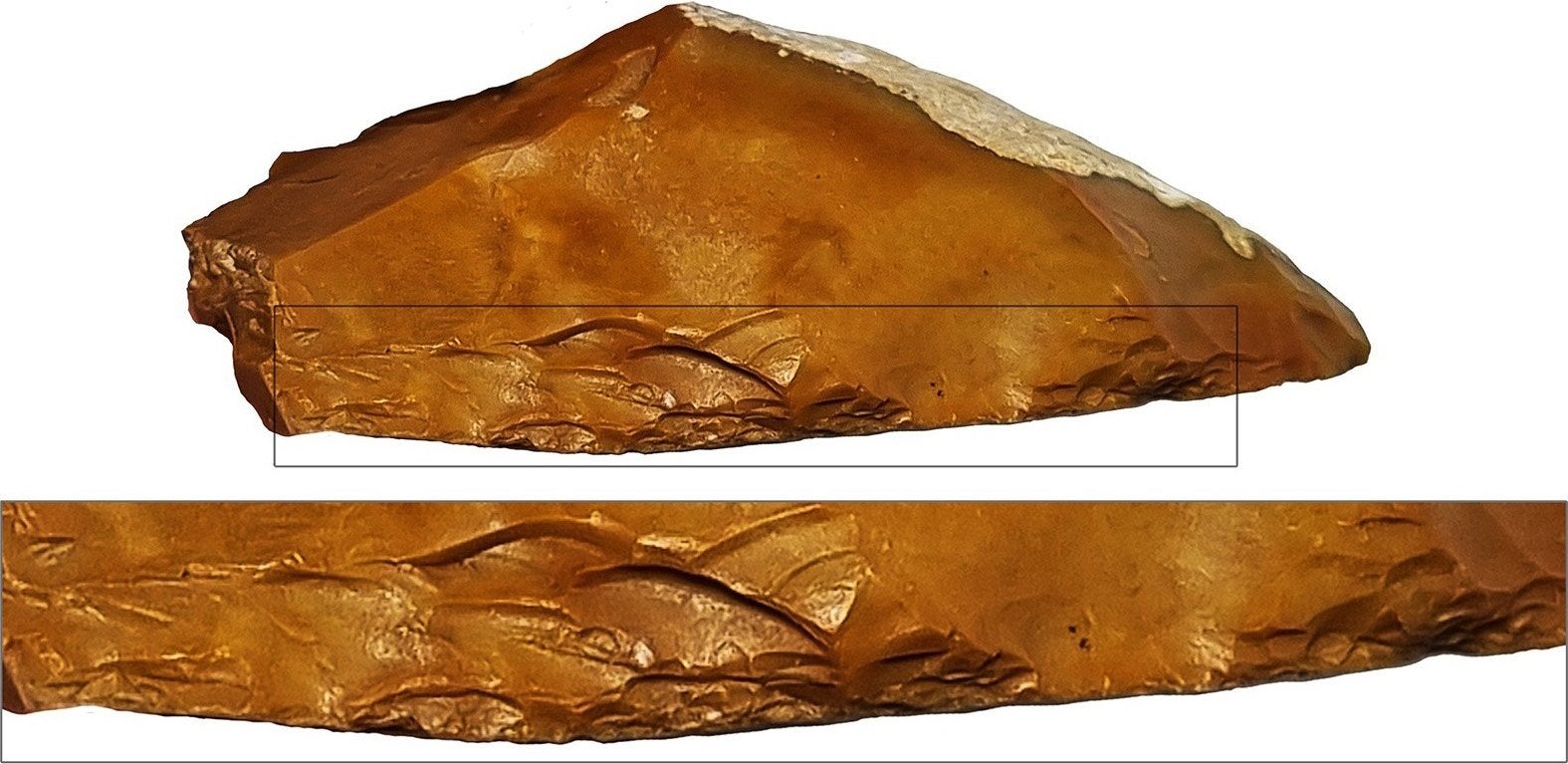Stone Age humans flocked to latest models of flint tools – and worshipped where they came from
Ancient humans developed more streamlined ‘Quina’ scrapers to hunt and butcher smaller prey after elephants disappeared in their region, study says
Archaeologists have discovered special scrapers used for hunting by early humans 400,000 years ago, shedding light on technological adaptations that enabled our ancient ancestors to diversify their prey.
The Quina scrapers were first found at a cave site in France after which they were named.
The tools are distinguished by their scalloped, sharp working edges, which were used for butchering deer and processing their hides.
They are made of flint procured from the mountains of Samaria about 20km east of the cave, according to the archaeologists who detailed their findings in a study published in the journal Archaeologies.
Consequently, it appears, the site was considered sacred by prehistoric hunters.

Archaeologists have known that early humans started using stone tools called scrapers to process hides and scrape the flesh off bones about 1.5 million years ago.
But these tools were mostly used for large game like elephants that provided most of their needed calories.
After elephants disappeared from the region 400,000 years ago, the hunters around Quina turned to fallow deer for prey. And they needed to adapt their tools to hunt, butcher and process this smaller and far quicker game, researchers said. That’s how the Quina scrapers came to be developed.
It seems systematic processing of numerous fallow deer instead of a single elephant was a far more complex and demanding task, requiring new implements.

The Quina scrapers, archaeologists said, were better shaped, sharper, and had a more uniform working edge compared to the simple scrapers used previously.
“We found a dramatic change in the human diet during this period, probably resulting from a change in the available fauna: the large game, particularly elephants, had disappeared, and humans were forced to hunt smaller animals, especially fallow deer,” Dr Vlad Litov, one of the study’s authors, said.
“Clearly, butchering a large elephant is one thing, and processing a much smaller and more delicate fallow deer is quite a different challenge.”
The findings imply that humans started making more sophisticated tools because they had to hunt and butcher smaller, faster, and thinner game.
Researchers so far believed that improvements in stone tools during this period was a result of brain changes in early humans.
“We found a connection between the plentiful source of fallow deer and the source of flint used to butcher them and we believe this connection held perceptual significance for these prehistoric hunters,” Ran Barkai, another author of the study, said.
“When the locals realised that the elephant population was dwindling they gradually shifted their focus to fallow deer. Identifying the deer’s plentiful source, they began to develop the unique scrapers in the same place,” said Dr Litov.
“This is the earliest instance of a phenomenon that later spread throughout the world.”
Join our commenting forum
Join thought-provoking conversations, follow other Independent readers and see their replies
Comments
Bookmark popover
Removed from bookmarks